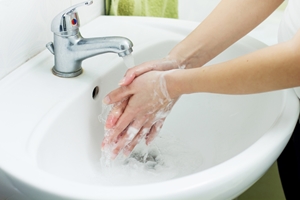Any healthcare professional, including a travel nurse, understands that containing infections in medical facilities is important for patient and staff safety and health. Recent research suggests that this process is even more crucial in nursing homes, facilities where travel nurses often work. A study conducted by Rhode Island Hospital and The Miriam Hospital, which was published in the American Journal of Infection Control, found that 4.6 percent of patients transitioning from nursing homes to hospitals tested positive for the drug-resistant bacteria carbapenem-resistant Enterobacteriaceae. However, none of these individuals showed symptoms.
While it's fairly common for individuals to carry certain bacteria with them from location to location, the findings in this study are especially troubling for several reasons. First, the particular bacteria can increase the risk for death or serious illness, Dr. Cheston Cunha, a co-investigator of the study, explained in a press release.
"When antibiotics fail, infections often last longer, cause more severe illness, require more doctor visits or extended hospital stays, and involve more expensive and toxic medications," said Cunha.
Second, seniors carried the bacteria, and older adults are even more susceptible than younger individuals to the consequences of antibiotic-resistant infections. Finally, the patients were asymptomatic, meaning it can be difficult for healthcare professionals to detect the presence of these harmful microorganisms.
The study results and associated risks suggest that nurses must make disinfection in nursing homes a priority. Here are some tips for thoroughly cleaning these communities:
Medical equipment
The U.S. Centers for Disease Control and Prevention noted that medical equipment, such as stethoscopes and blood pressure cuffs, can easily aid in the spread of infectious bacteria, and healthcare professionals should clean them appropriately. The CDC recommended individuals tasked with this duty use a low- or intermediate-level disinfectant registered by the U.S. Environmental Protection Agency, as these objects come into contact with only intact skin. Be sure to target all areas of these equipment pieces – not just the parts that made contact with the patient.
Frequently touched surfaces
As a travel nurse, it's important to think outside of the box when disinfecting medical facilities. For instance, while medical equipment like hemodialysis machines may stand out as needing a thorough cleaning, those aren't the only items that require your attention. Frequently touched surfaces are a major aid in the spread of infectious bacteria, and you should target them in your cleaning strategy. This includes doorknobs, bed rails, faucets, TV remotes, light switches, elevator buttons and phones, among other objects.
Hand hygiene
Nurses' hands have healing powers, but they can also contribute to the spread of infectious bacteria. It's important for all healthcare professionals, including travel nurses, to practice proper hand hygiene and encourage this habit among patients and their visitors. According to the Association for Professionals in Infection Control and Epidemiology, healthcare professionals can wash their hands with plain or antimicrobial soap at any time or when the hands are visibly dirty. To effectively complete this process, wet the hands with warm water, apply soap, rub vigorously for 15-20 seconds being sure to reach all areas of the hand, rinse off the soap and dry your hands with a clean towel.
Nurses can opt for alcohol-based hand rub to reduce the amount of bacteria on hands that are not visibly dirty. To do this, pump the manufacturer-recommended amount of the product on the hand and rub hands together until the sanitizer dries up.
Of course, it may be challenging to squeeze hand hygiene into a busy work day, but it is nonetheless a crucial component of infection control. Travel nurses may benefit from thoroughly reviewing their medical facilities' hand-hygiene policies and applying them when necessary.

